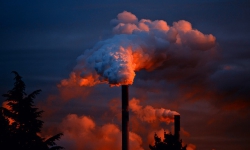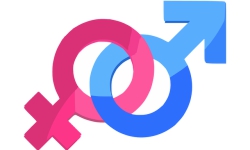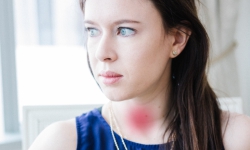Candida Albicans is a yeast found in the skin, mouth, the mucous membranes and intestines. This yeast only becomes a problem when it goes out of control and becomes an infectious agent. Then the intestinal wall is weakened and the overgrowth penetrates through into the bloodstream releasing its by-products. One of the major by-products of… Read more
Chronic Fatigue Syndrome

Chronic Fatigue Syndrome has many different causes and we need to analyze each case separately. Once we understand your underlying causes better we then can narrow down more effectively where to start and how to combat your condition. The therapy will most often comprise of a combination of metabolic therapy, detoxification, adrenal therapy and ozone… Read more
Endocrine System Malfunction

The endocrine system influences almost every cell, organ and function of the body. It consists of different glands which secrete certain hormones to different cells aiding their function. Endocrine glands release more than 20 major hormones directly into the bloodstream to be relayed to other parts of the body. Each of the glands plays a… Read more
Estrogen, Unbalanced Levels

Estrogen is the primary hormone that promotes the development and regulation of the female reproductive system of the body. This includes the growth of the secondary sex characteristics (breasts, pubic and underarm hair, endometrial, regulation of the menstrual cycle and reproductive system). They can also be produced artificially for use in oral contraceptives or treatment… Read more
GI Issues

Gastrointestinal Diseases (GI) involve the gastrointestinal tract, which includes the esophagus, stomach, small intestine, large intestine and rectum. The accessory organs which can be affected by problems in the GI tract are the liver, gallbladder and pancreas. The GI system is designed to process nutrients and energy from food and fluid. It breaks down the… Read more
Heavy Metals Burden

Can toxic metals affect a person’s well-being? Exposure to toxins influence a person’s health and can even result in illness. Some symptoms and results of heavy metal toxicity in the body are irritability, depression, memory loss, mental disturbances, anxiety, low energy, kidney and liver damage, joint pains, inflammations as well as cardiovascular dysfunction. What are… Read more
Insomnia

Insomnia is defined in various ways: habitual sleeplessness, wakefulness, difficulty in falling asleep or staying asleep. Insomnia is not a medical condition but rather a symptom of some problem either physical or mental. There are two types of insomnia. Primary insomnia is a condition where the person is having difficulty sleeping due to an immediate problem. Secondary… Read more
Low Energy

Mitochondria are thread-like granules inside cells that contain DNA and that generate energy from the foods that we eat. DNA has the power to multiply and pass genetic material to the offspring. Healthy mitochondria are critical to well-being. Avoiding certain toxins and proper supplementation are ways to maintain the health of mitochondria. Energy is a… Read more
Migraines

Migraine headaches are a reoccurring throbbing headache that typically affects one side of the head and is often accompanied by nausea, vomiting, disturbed vision and sensitivity to light, sound or smell. They can have moderate to severe pain and last from 4 to 72 hours. There are two types of a migraine, with aura and… Read more
Parkinson’s Disease

Parkinson’s disease is a progressive disorder of the central nervous system that affects movement. The cause is unknown and there is presently no cure, however, there are treatments to manage the symptoms. Parkinson’s disease begins with the malfunction and death of certain vital nerve cells in the brain called neurons. Some of these neurons produce… Read more
Testosterone Loss

Testosterone is a hormone produced by the testicles and is responsible for the proper development of male sexual characteristics. It maintains muscle bulk, adequate levels of red blood cells, bone growth, a sense of well being and sexual function. It is also produced in the female as well and helps grow the secondary sexual characteristics… Read more
Thyroid Disfunction

Did you know that a tiny, butterfly-shaped gland nestled in your throat is responsible for producing and regulating some of the most important hormones in your body? This mighty gland is called the thyroid, and while it’s relatively small in size, it plays a large role in our endocrine (hormone) system. The thyroid gland produces… Read more
